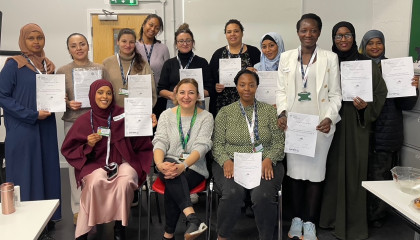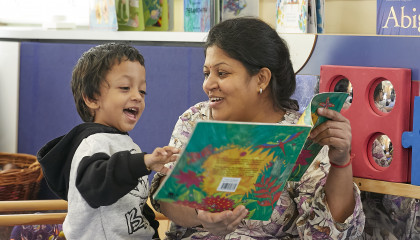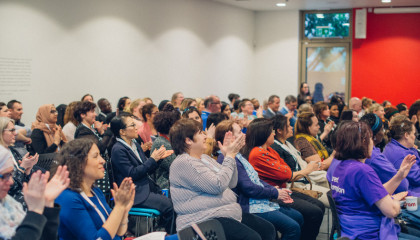You are here: Evaluation of 30 hours pilots highlights need for annual funding review
breadcrumb navigation:
- Home /
- Evaluation of 30 hours pilots highlights need for annual funding review

Evaluation of 30 hours pilots highlights need for annual funding review
Gordon Cameron
27 July 2017
This September will see the national roll out of a new childcare offer that entitles working parents of three and four year olds in England to 30 hours per week of free childcare during school term time (or 1,140 hours per year overall). For eligible families, this will double their current free entitlement.
There has been much speculation about the impact that this will have on families and on childcare providers and the evaluation of the pilot schemes have been eagerly awaited. The evaluation from the Department for Education (DfE) was published last week, drawing on large scale surveys with parents and providers involved in the trial scheme, interviews with local authority early years staff, and analysis of national datasets.
Though the evidence from the evaluation cannot be used to predict the future success of the policy, due to significant differences between the trial of the scheme and its national roll out, the study highlights a number of important issues.
On the whole, parents’ experience of the trial was positive. As a result of accessing the extended offer, many parents, especially those on lower incomes, said they increased their use of formal childcare, and some were able to increase their work hours (though the researchers note that these changes may have occurred even in the absence of the extended entitlement). Most families reported that the extended hours meant they were better off financially as they were spending less on childcare.
For childcare providers, the picture is less favourable. The extended offer will often mean that hours that were once paid for by parents will now be funded by the government. This means childcare providers will be comparing the government’s funding rate to what they would otherwise have charged to parents, as well as whether it covers the actual cost of delivery. According to the evaluation, 50 per cent of private providers said that their profits had decreased as a result of delivering the extended offer. Some providers involved in the trial said that they may have to limit the number of places for the 30 hour offer because of financial concerns.
Though the national funding rate for the free entitlements will be fixed until 2020, it is likely that costs for providers will rise due to increases in the living wage, the introduction of pension autoenrolment and changes to business rates. The greater uncertainty created by these factors could make it difficult to manage the financial impact of delivering the 30 hour offer.
Funding pressures for childcare providers have an effect on the quality and availability of childcare for parents. Earlier this year our own research, No Shortcuts: Quality and the free childcare extension, revealed that providers were anxious that delivering the 30 hour offer would mean they would struggle to remain financially viable. Some providers were concerned that it could affect the quality of childcare, as savings would be made on staff wages and training, adult to child ratios, and resources and activities in order to make ends meet. Others were concerned that children not entitled to the extended offer, but still entitled to 15 hours per week could find it harder to access places, particularly children with SEND.
A number of providers told us that they would have to rely on charging parents for additional services such as lunches and trips. However, the evaluation published last week highlighted confusion relating to these fees. Some parents were unsure what they were paying for, while local authorities were unsure about whether certain charges contravened guidance from the DfE, or how to intervene in cases where they had.
In response, the DfE has updated its guidance, clarifying that providers can charge for extra activities and services, but that these must be provided as optional extras to the free offer, rather than as a condition of taking up a place. Parents should be allowed, for instance, to provide a packed lunch for their child rather than pay for a meal. Although this is now clearer, some providers report that it will be difficult to make this slightly uncertain funding stream make a significant impact on balancing their books.
The evaluation concludes that there is ‘no specific reason to believe that 30 hours free childcare will not be a success’. However, the evidence presented in the evaluation, as well as the findings of our own research make it clear that for both parents and providers the impact of the scheme remains far from certain. For the scheme to be a success, Government must make sure that all children can access the childcare they are entitled to and that it is high quality. They must commit to an annual review of funding rates to make sure they cover the cost of delivering high quality early education, and make sure there are enough high quality childcare places for all children, including deprived two year olds entitled to 15 hours free childcare per week and children with SEND.

More from our blog
Parent Champions Conference and Awards 2025
What a fantastic two days at the Parent Champions Conference and Awards 2025!
The Exciting Story Of The First Year Of Books Together
The Exciting Story of Books Together
The NAFIS Conference and Awards 2024
Read about the NAFIS Conference and Awards 2024
Sign up to our newsletter
Get the latest news, research and resources from Coram Family and Childcare



